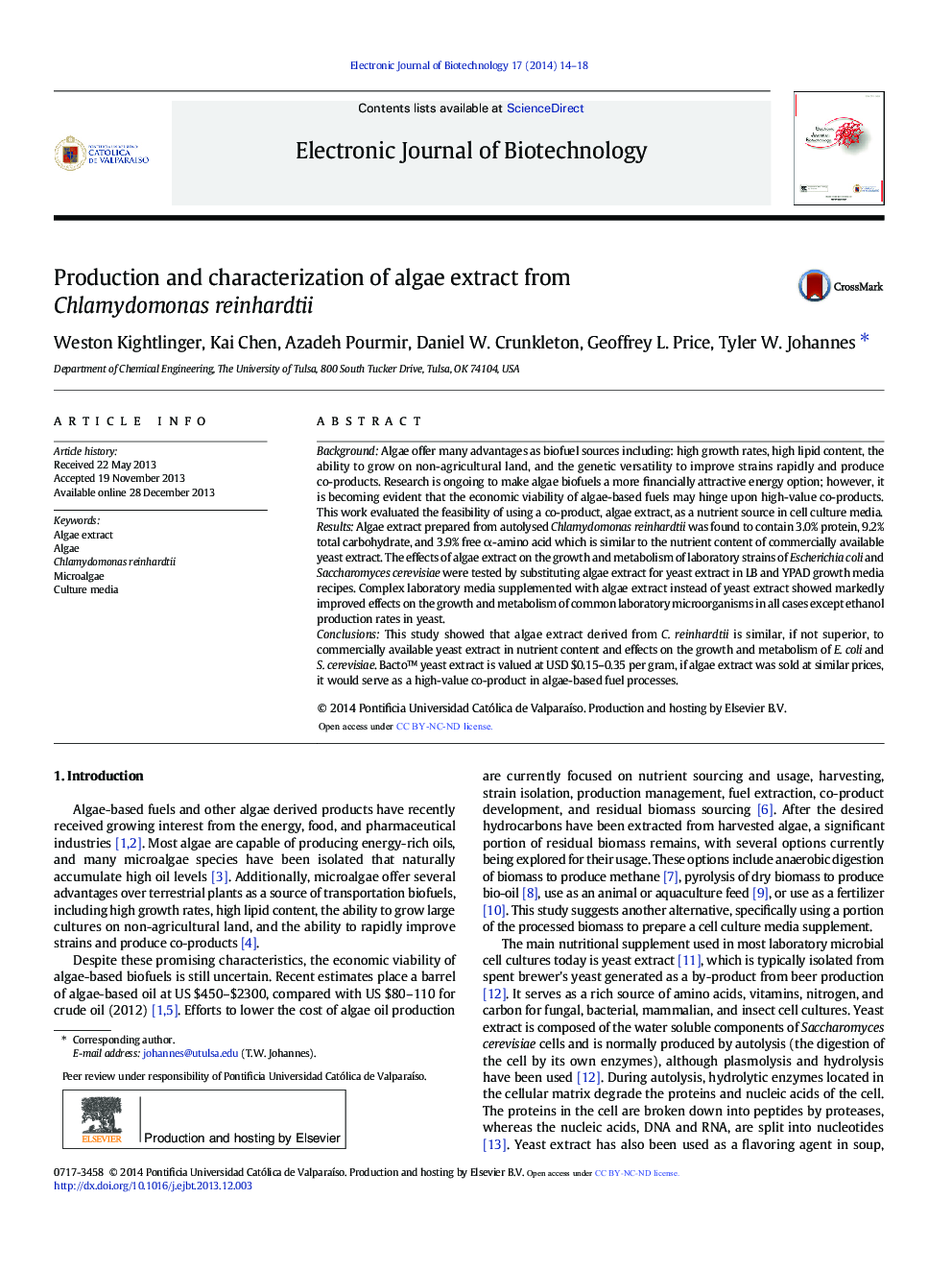| Article ID | Journal | Published Year | Pages | File Type |
|---|---|---|---|---|
| 200833 | Electronic Journal of Biotechnology | 2014 | 5 Pages |
BackgroundAlgae offer many advantages as biofuel sources including: high growth rates, high lipid content, the ability to grow on non-agricultural land, and the genetic versatility to improve strains rapidly and produce co-products. Research is ongoing to make algae biofuels a more financially attractive energy option; however, it is becoming evident that the economic viability of algae-based fuels may hinge upon high-value co-products. This work evaluated the feasibility of using a co-product, algae extract, as a nutrient source in cell culture media.ResultsAlgae extract prepared from autolysed Chlamydomonas reinhardtii was found to contain 3.0% protein, 9.2% total carbohydrate, and 3.9% free α-amino acid which is similar to the nutrient content of commercially available yeast extract. The effects of algae extract on the growth and metabolism of laboratory strains of Escherichia coli and Saccharomyces cerevisiae were tested by substituting algae extract for yeast extract in LB and YPAD growth media recipes. Complex laboratory media supplemented with algae extract instead of yeast extract showed markedly improved effects on the growth and metabolism of common laboratory microorganisms in all cases except ethanol production rates in yeast.ConclusionsThis study showed that algae extract derived from C. reinhardtii is similar, if not superior, to commercially available yeast extract in nutrient content and effects on the growth and metabolism of E. coli and S. cerevisiae. Bacto™ yeast extract is valued at USD $0.15–0.35 per gram, if algae extract was sold at similar prices, it would serve as a high-value co-product in algae-based fuel processes.
